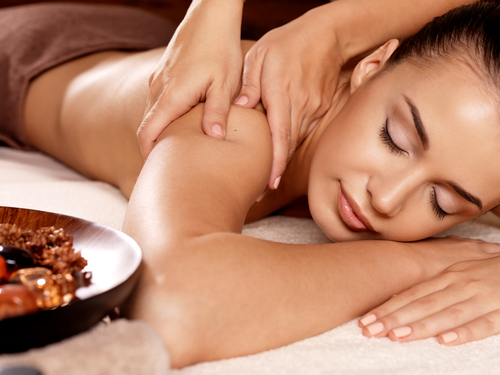
Jump to
Short answer
No, massages are not bad for you. They actually provide many health benefits, including reduced stress, decreased pain, alleviated muscle tension and more. However, massages do carry some risk for those with certain bleeding and/or bone disorders.
Long answer
Massage is an ancient practice, with archaeological evidence dating all the way back to 2230 B.C. However, it’s a fairly new industry in the Western world. Massage came to prominence in the 1970s, rising in popularity among American athletes. Today, the massage therapy industry enjoys continuous growth: according to the American Massage Therapy Association (AMTA), approximately 39.1 million Americans had at least one massage during 2015. Research estimates that massage therapy was a $12.1 billion industry in 2015.
So is massage actually good for you? Or is it just a marketing ploy?
A growing body of research suggests that regular massages may have more health benefits than just temporary relief from aches and pains. In fact, the physical manipulation of your body during a massage leads to (at least) two major benefits.
First, a massage increases your blood and lymph node circulation. With improved circulation, your body can more efficiently deliver oxygen and nutrients to cells—including the ones that make up your immune system. Numerous studies have connected massage with enhanced immune system functionality. A 2010 study revealed that massage therapy increased the body’s white blood cell count, which are crucial to fighting disease.
Secondly, a massage helps relax your soft tissue and prevent nerve compression. When these muscles, tendons, and ligaments are relaxed, the surrounding nerves can get more nutrients and transmit messages from the brain to your body more effectively, which improves muscle and organ function. This is likely the physiological reason that several studies have linked massage to the improvement of certain medical conditions, including anxiety, digestive disorders, headaches/migraines, insomnia and more.
While many people can benefit from or, at the very least, enjoy a massage—there are some who are at risk. If you have bleeding disorders or are on blood-thinning medication, the pressure from a massage can cause serious bruising or even lead to internal bleeding. Massages should also be avoided if you have burns, open wounds, fractures or osteoporosis. If you have any of these conditions, or if you are pregnant, battling cancer or experiencing unexplained pain, consult your physician prior to beginning massage therapy.
Remember: massage works by applying pressure to relieve tension in your muscles. In some cases or with certain massages, that pressure can result in a little soreness the following today. However, a massage should never be sharply painful or uncomfortable in any way. If any part of your massage doesn't feel right or is painful, speak up right away. Most serious problems come from too much pressure during massage.
Possible short-term side effects
- temporary pain or soreness
- bruising
- swelling
- allergic reactions to massage oils
Possible long-term side effects
- creation of new injuries
- chronic pain problems
- mild stress to nervous system

Benefits
- alleviates aches and pains
- improved circulation
- strengthened immune system
- improved tissue and organ function
 Approved by
Approved by 

.png)












